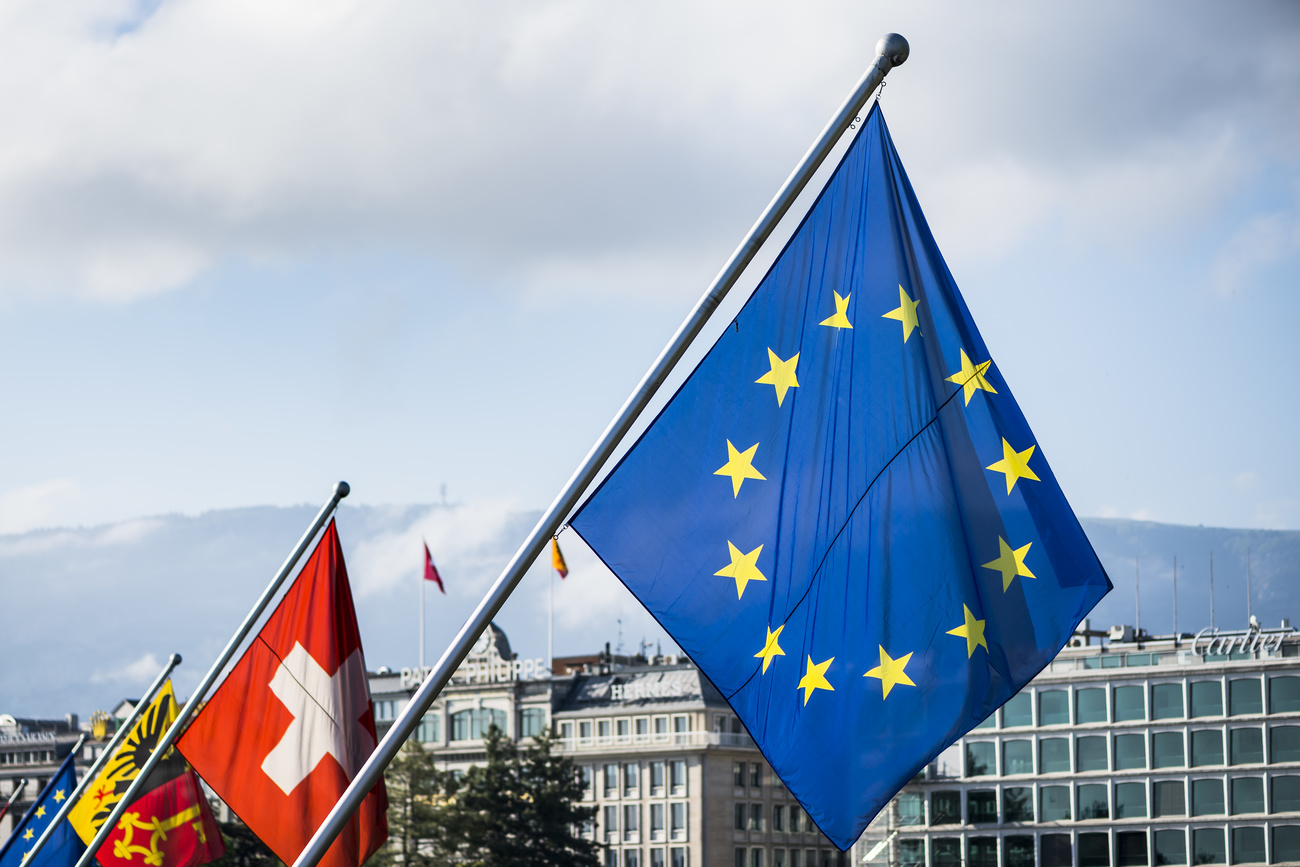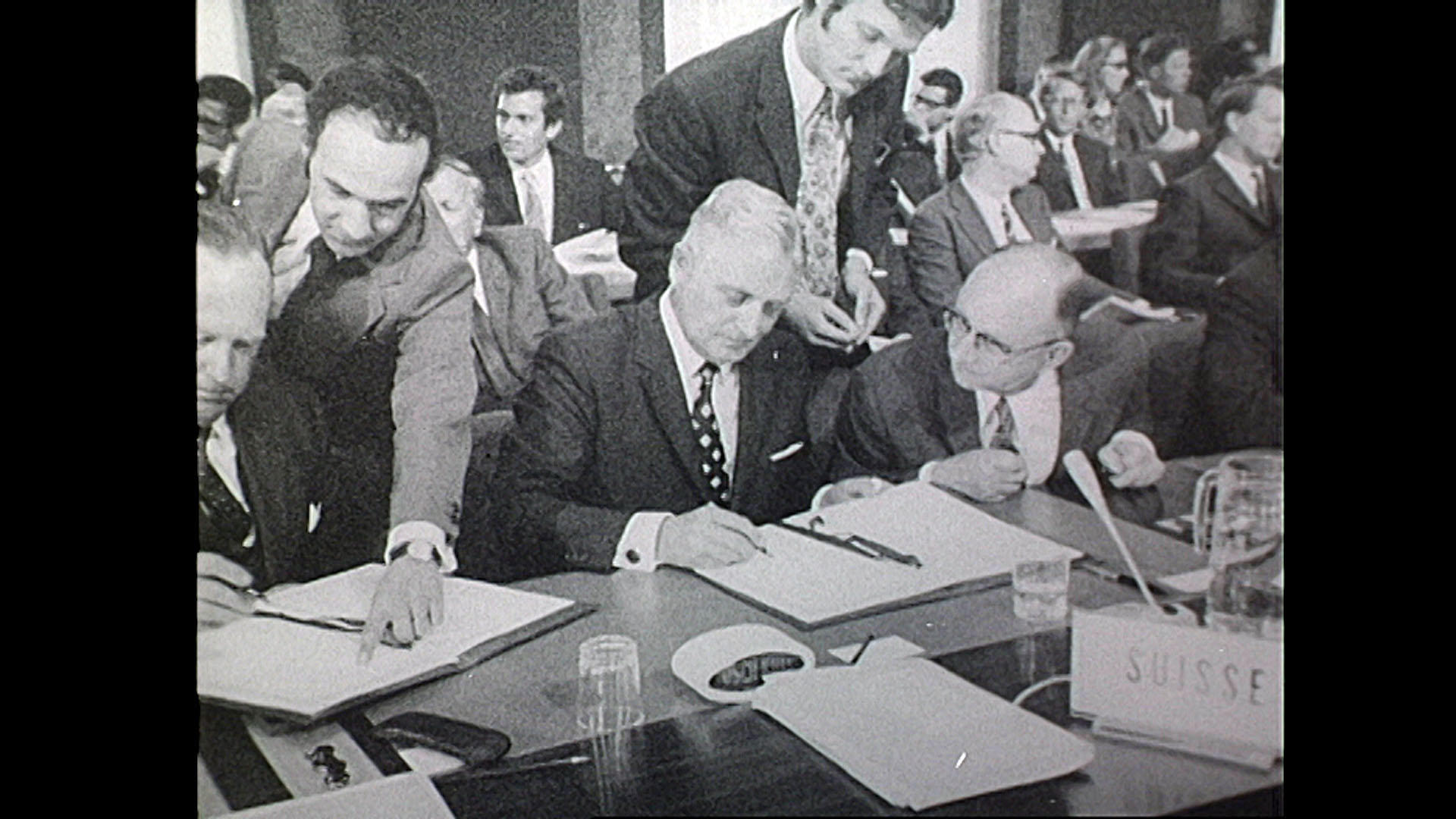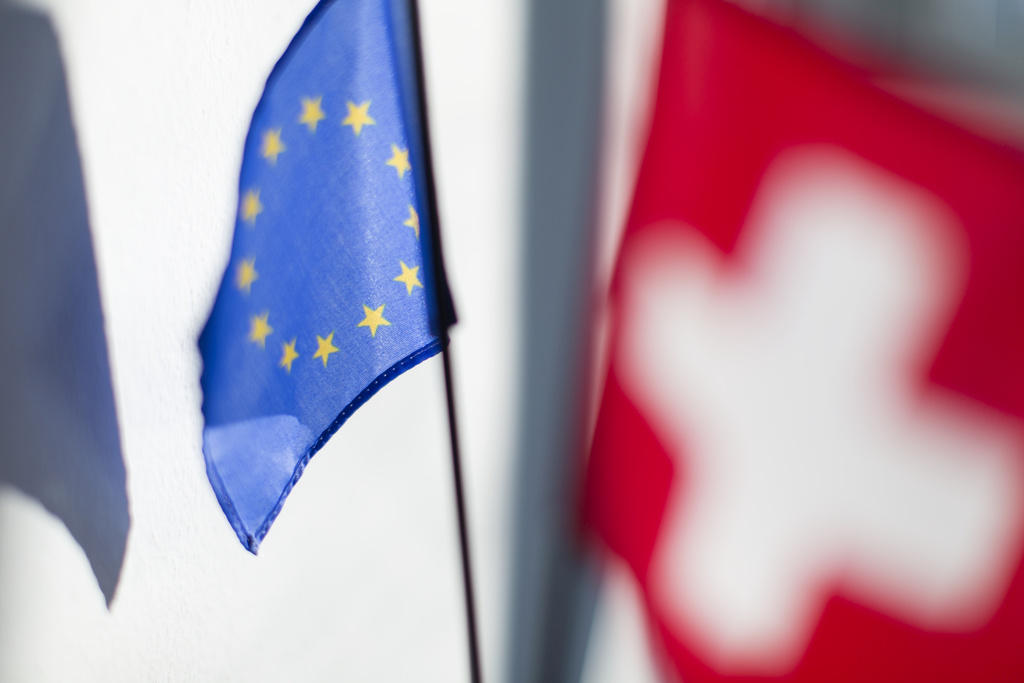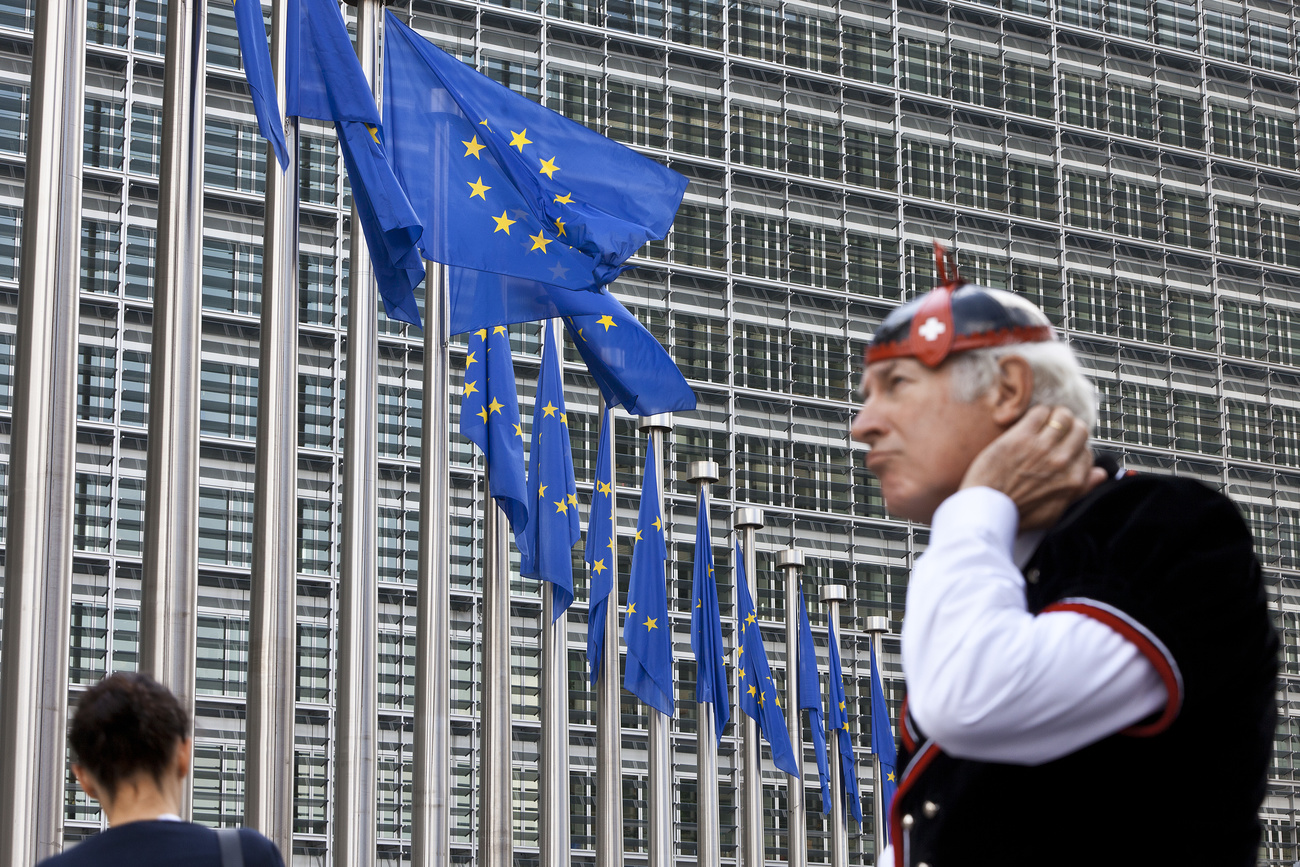Swiss reject framework agreement deal with EU

Citing “substantial differences” on the deal, the Swiss government has decided to shelve a controversial institutional agreement on relations with the European Union.
“This brings negotiations on the draft of the [framework agreement] to a close,” the government said on Wednesday.
Concretely, it means the end of seven years of efforts between Switzerland and the EU to craft an overarching treaty to replace the more than 120 bilateral deals which have regulated relations for the past decades.
The government cited a lack of agreement on three key points which have hampered progress since a deal was drafted in 2018: salary protection, state aid rules, and the access of EU citizens to Swiss social security benefits.
This last point was particularly controversial: accepting Brussel’s demands for equal rights for EU workers in Switzerland would have amounted to a “paradigm shift” for the country’s migration policy, said Foreign Minister Ignazio Cassis on Wednesday.

More
Newsletters
‘New chapter’
Swiss media had speculated in recent days that the deal was on its deathbed, with government ministers unconvinced of getting it past a parliament and public sceptical about what it might imply for the country’s sovereignty.
On Wednesday, however, the government was also keen not to undermine relations with the country’s largest trading partner.
“Switzerland remains a leading partner [of the EU] and vice-versa”, said President Guy Parmelin at a news conference in Bern. He said it was not a “black Wednesday” – as one journalist suggested – but rather a “new chapter” in Swiss-EU relations.
The government wants this new chapter to be based on “cultivating and developing” relations on the basis of the existing bilateral agreements, and it has proposed to launch a political dialogue with Brussels to pursue common priorities for the future.
The Justice ministry will also lead a review of Swiss legislation, to examine discrepancies between EU and Swiss law and to see where alignment is possible, in a bid to stabilise relations.
This review will be done “autonomously”, with changes only made “where it makes sense”, Justice Minister Karin Keller-Sutter clarified.
The government has also pledged to press the parliament to give the go-ahead for the release of Switzerland’s CHF1 billion ($1.1 billion) contribution to the EU cohesion fund – a key demand of Brussels – “as soon as possible”.

More
Deal or no deal: How five non-member states handle EU relations
Uncertain outlook
However, observers say that since the bilateral deals tend to erode naturally over time, and since the EU has often linked their renewal to progress on an overarching treaty, the risk is that Switzerland will be increasingly blocked from any new access to the single market, such as an electricity union.
Existing accords which expire can also have negative effects: as of Wednesday, for example, following the expiry of a deal on medical device standards, Swiss exporters of such equipment have lost their privileged direct access to the European market.
The equivalency with Europe enjoyed by the Swiss stock market was also a victim of stalled relations in the past, while the Swiss research community remains anxious about the Alpine nation’s participation in the Horizon Europe research programme.
Mixed reaction
The EU Commission said it regretted the Swiss government’s decision.
“Without this agreement, this modernisation of our relationship will not be possible, and our bilateral agreements will inevitably age […] Already today: they are not up to speed for what the EU and Swiss relationship should and could be,” the Commission said in a statement.
In Switzerland, meanwhile, there was mixed reaction from political parties and organisations.
While the right-wing People’s Party welcomed the government decision as a “victory for Swiss sovereignty and direct democracy”, most of the other main parties lamented the failure to reach a compromise with the EU.
Swiss trade unions, who had been particularly worried about the protection of domestic salaries from short-term EU competition, welcomed the news.

More
Swiss-EU relations: the key milestones

In compliance with the JTI standards
More: SWI swissinfo.ch certified by the Journalism Trust Initiative



You can find an overview of ongoing debates with our journalists here. Please join us!
If you want to start a conversation about a topic raised in this article or want to report factual errors, email us at english@swissinfo.ch.